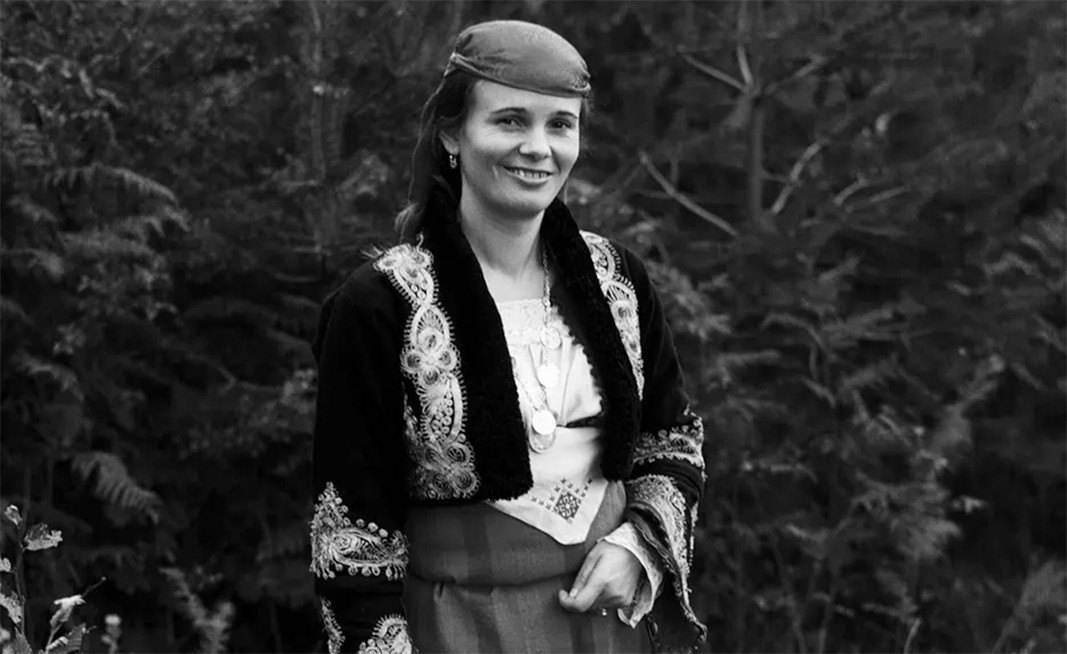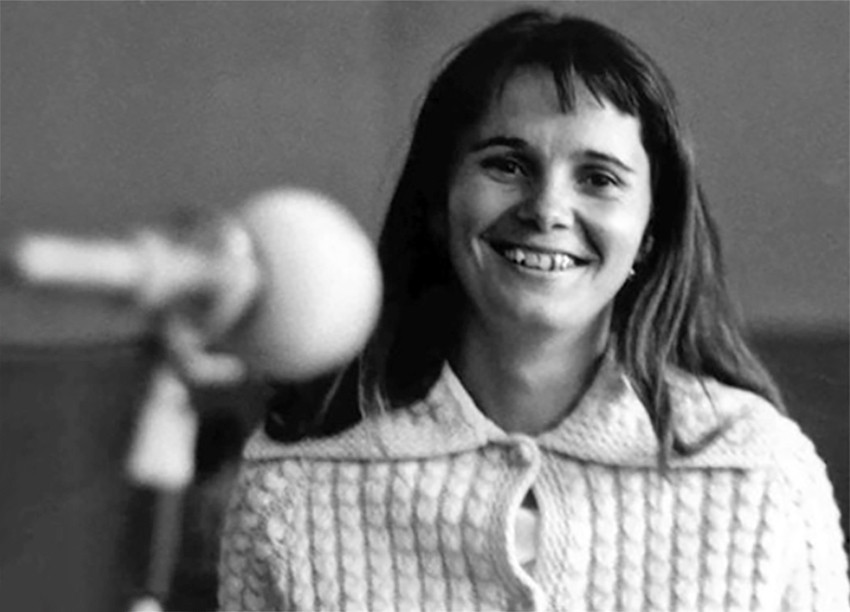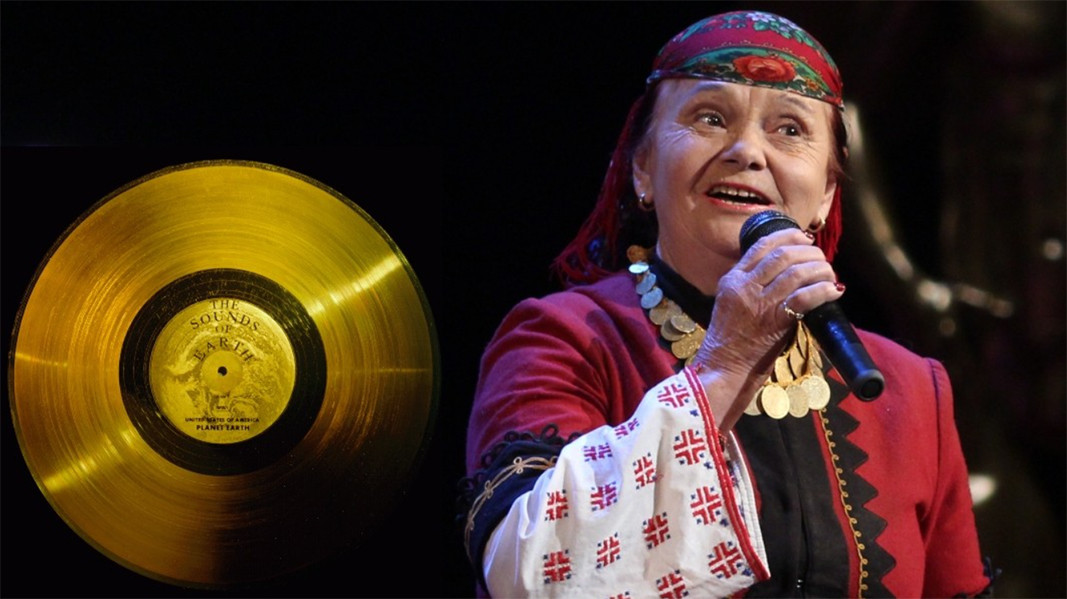For centuries, legends in the Rhodope Mountains have told the story of a legendary rebel leader named Delyo Voivode. The grateful local people have dedicated some of their most beautiful songs and stories to him.
The song "Izlel e Delyo Haydutin" was first recorded by folklorists in the Zlatograd region in the 1930s. Its first audio recording was made at the Bulgarian National Radio to the rendition of Nadezhda Hvoyneva. In 1965, during the first National Festival of Bulgarian Folklore in Koprivshtitsa, American folklorist Ethel Raim was deeply moved by a performance of the song by 23-year-old Valya Balkanska.
Valya was born in the village of Arda near Smolyan. Gifted with an extraordinary voice and excellent musical ear, she never stopped singing. At the age of 18, she secretly attended an audition in Smolyan. Her professional career began in 1960 when she joined the Rodopa State Ensemble for Folk Songs and Dances as a soloist.

Shortly after Ethel Raim heard Valya in Koprivshtitsa, a young American folklorist named Martin Koenig also became intrigued by Bulgaria. A non-governmental organization founded by Koenig focused on researching, documenting and presenting traditional culture. His goal was to record authentic Bulgarian folk music.
In the United States, he heard Ethel Raim’s recordings from the Koprivshtitsa festival. The two decided they had to meet Valya Balkanska again.
They arrived in Bulgaria in 1968 with a sound recording crew and high-quality equipment. Since there was no studio in the Smolyan area, they set up the equipment in a low-ceilinged classroom. Valya stood at one end of the room, two bagpipers at the other, each in front of a microphone. The bagpipers were not professional musicians, but miners: "Stefan Zahmanov from Sokolovtsi and Lazar Kanevski from Momchilovtsi were incredible because they played from the heart", Martin Koenig recalled years later.

However, the American folklorists were not involved in the selection of "Izlel e Delyo Haydutin" for the Golden Record aboard Voyager 1, a spacecraft launched on September 5, 1977, from Cape Canaveral, which left the Solar System in 2004. The record, containing images and sounds from Earth, was intended to preserve a piece of Earth's heritage for future generations and to serve as a message to extraterrestrial civilizations.

The contents include natural sounds, greetings in 55 languages and messages from the U.S. President and the UN Secretary-General. Bulgarian isn’t among the spoken greetings, but in the 90-minute music selection, alongside pieces by Bach, Mozart, Beethoven and Stravinsky, there is folk music from Java, Senegal, Zaire, Australia, Mexico, New Guinea, Japan, Georgia, Peru, Azerbaijan, the Solomon Islands, China, India, the Navajo people, and Bulgaria’s gem, "Izlel e Delyo Haydutin".

Bulgaria may not speak on the Golden Record, but it sings with the most powerful voice of the Rhodopes. The voice of Valya Balkanska — an earthly voice with otherworldly dimensions — has become a part of the universe. To this day, Valya Balkanska is a symbol of the wisdom of the Bulgarian people, the unique spirit of our folklore and our most cherished virtues — kindness and humanity, and the eternal quest for harmony and perfection.
For decades, a misguided notion has persisted in the histories of Bulgarian classical music – that the country still had catching up to do with Europe and the wider world. Such a view is not only misleading, but it does a grave disservice to..
Kalina Andreeva and Yoana Andreeva have been involved with music literally their whole lives. Although they have a classical musical education, as daughters of the singer, conductor and vocal pedagogue Neli Andreeva and the conductor, composer,..
Two young girls - Elisaveta Tasheva aka eleeza and Rada Ilieva - have been singing since they were little, but also create their own original songs. Now, united by their common views on music, they present their joint song "What divides us". The music..
For decades, a misguided notion has persisted in the histories of Bulgarian classical music – that the country still had catching up to do with..
Kalina Andreeva and Yoana Andreeva have been involved with music literally their whole lives. Although they have a classical musical education, as..

+359 2 9336 661
